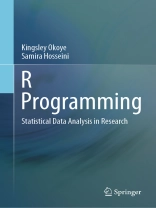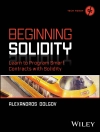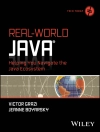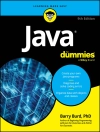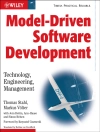This book is written for statisticians, data analysts, programmers, researchers, professionals, and general consumers on how to perform different types of statistical data analysis for research purposes using R object-oriented programming language and RStudio integrated development environment (IDE). R is an open-source software with a development environment (RStudio) for computing statistics and graphical displays through data manipulation, modeling, and calculation. R packages and supported libraries provide a wide range of functions for programming and analyzing of data. Unlike many of the existing statistical software, R has the added benefit of allowing the users to write more efficient codes by using command-line scripting and vectors. It has several built-in functions and libraries that are extensible and allows the users to define their own (customized) functions on how they expect the program to behave while handling the data, which can also be stored in the simple object system. Therefore, this book serves as both textbook and manual for R statistics particularly in academic research, data analytics, and computer programming targeted to help inform and guide the work of the users. It provides information about different types of statistical data analysis and methods, and the best scenarios for use of each case in R. It gives a hands-on step-by-step practical guide on how to identify and conduct the different parametric and nonparametric procedures. This includes a description of the different conditions or assumptions that are necessary for performing the various statistical methods or tests, and how to understand the results of the methods. The book also covers the different data formats and sources, and how to test for the reliability and validity of the available datasets. Different research experiments, case scenarios, and examples are explained in this book. The book provides a comprehensive description and step-by-step practical hands-on guide to carrying out the different types of statistical analysis in R particularly for research purposes with examples. Ranging from how to import and store datasets in R as objects, how to code and call the methods or functions for manipulating the datasets or objects, factorization, and vectorization, to better reasoning, interpretation, and storage of the results for future use, and graphical visualizations and representations thus congruence of Statistics and Computer programming in Research.
สารบัญ
Introduction to R programming and RStudio Integrated Development Environment (IDE).- Working with Data in R: Objects, Vectors, Factors, Packages and Libraries, and Data Visualization.- Test of Normality and Reliability of Data in R.- Choosing between Parametric and Non-Parametric Tests in Statistical Data Analysis.- Understanding Dependent and Independent Variables in Research Experiments and Hypothesis Testing.- Understanding the Different Types of Statistical Data Analysis and Methods.- Regression Analysis in R: Linear and Logistic Regression.- T-test Statistics in R: Independent samples, Paired sample, and One sample ttests.- Analysis of Variance (ANOVA) in R: One-way and Two-way ANOVA.- Chi-squared (X2) Statistical Test in R.- Mann Whitney U test and Kruskal Wallis H test Statistics in R.- Correlation Tests in R: Pearson cor, Kendall’s tau, and Spearman’s rho.- Wilcoxon Statistics in R: Signed-Rank test and Rank-Sum test.
เกี่ยวกับผู้แต่ง
Dr. Kingsley Okoye received his Ph.D. in Software Engineering from the University of East London, UK, in 2017. He has worked as Data Architect and currently a Research Professor and Mentor at The Institute for Future of Education, Tecnologico de Monterrey and Department of Computer Science, School of Engineering and Sciences, Tecnologico de Monterrey, Mexico. He is a Senior Member of The Institute of Electrical and Electronics Engineers (IEEE). His research interests include Process Mining and Automation, Semantic Web Technologies, Learning Analytics and Systems Design, Data Science, Artificial Intelligence, Text Mining, Computer and Education, Educational Innovation, Educational Technologies, Knowledge Engineering and Data Management, Internet Applications and Ontology.
Dr. Samira Hosseini obtained her Ph.D. in Biomedical Engineering from the University of Malaya, Kuala Lumpur, Malaysia. She served as a postdoctoral associate at Department of Electrical engineering, School of Engineering and Sciences, Tecnologico de Monterrey, Mexico, and as a postdoctoral fellow at Research Laboratories of Electronics (RLE) at Massachusetts Institute of Technology, Cambridge, USA. Currently, she is the director of Writing Lab at the Institute for the Future of Education within Tecnologico de Monterrey which focuses on educational research, faculty training, and enhancing the publication record of Tecnologico de Monterrey. She also holds the position of research professor at the School of Engineering and Sciences, Tecnologico de Monterrey, Mexico.
